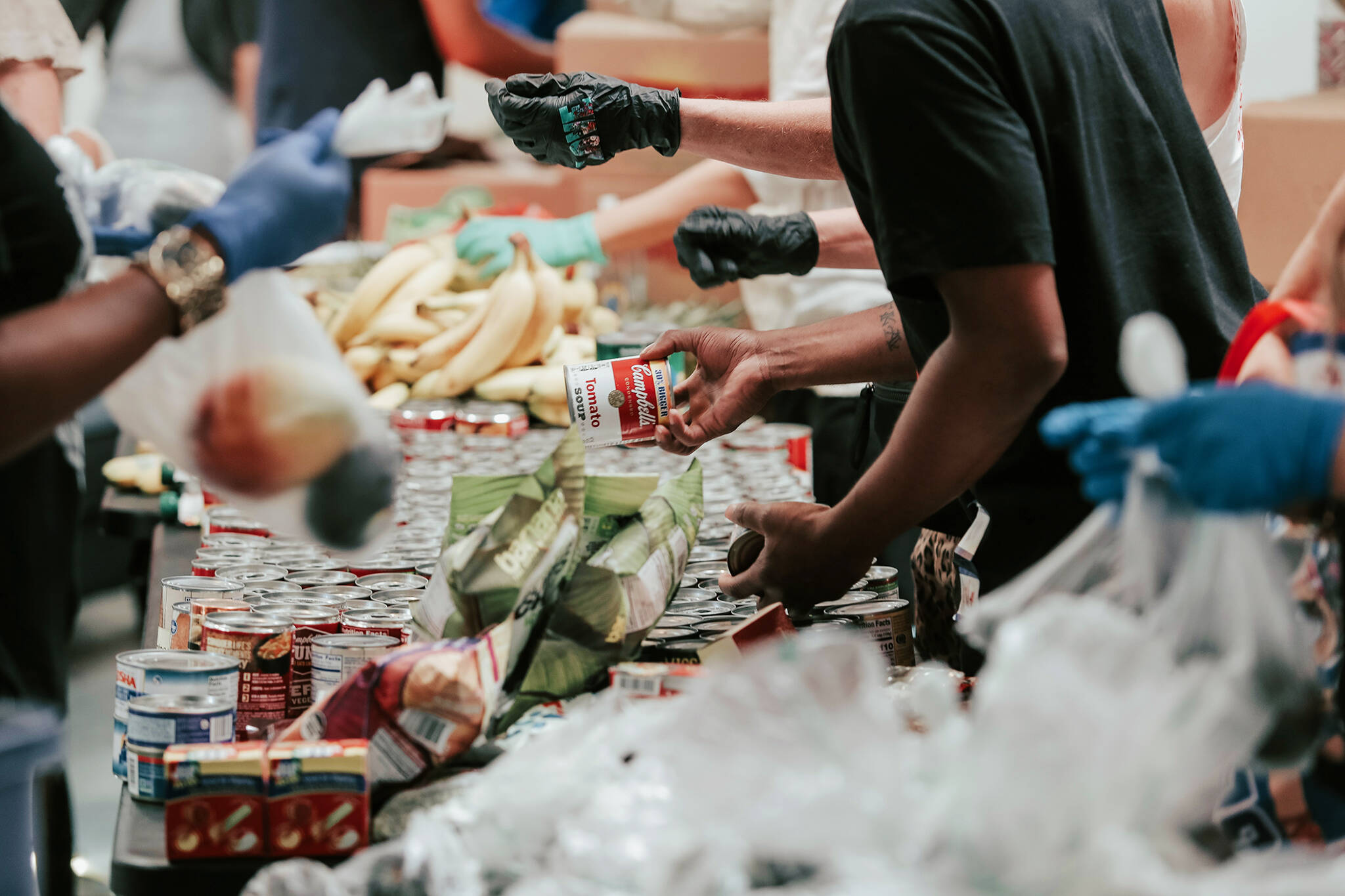
Brampton food banks are banning international students from using their services
Food banks across Canada have been coping with untenable record demand for their services in recent months, and as they head into what is the busiest time of year for them, some are having to turn one particular demographic away: international students.
The Ste. Louise Outreach Centre of Peel food bank in Brampton has been around for more than 40 years, and currently serves over 2,600 families per month — a number that nearly doubles around the holidays, according to Board President Catherine Rivera.
And, while the organization continues to take on a handful of new registrants daily, it has noticed a concerning uptick in international students coming for meals in the last two months — so many that it has had to post signage explaining that it can't provide for them.
Sign outside a food bank in Brampton clearly says ‘NO International students’.
— Darshan Maharaja (@TheophanesRex) November 2, 2023
While I was there (dropping off leftover candy from Halloween), a young lady came by to ask if she could get food.
Turns out, she is in Canada on a VISIT VISA.
FTR she wasn’t South Asian, but black. pic.twitter.com/X0XvXxp3fZ
"There can be a lot of abuse with food banks," Rivera says, saying that her location verifies ID, proof of living in the catchment area that Ste. Louise covers, and bank statements to ensure applicants are truly in need.
"For certain groups like permanent residents, we can't serve you until you've been here for a year since the government standard is that you need to be able support yourself... and students, who are here temporarily, we also will not serve."
Proof of funds is indeed among the paperwork foreign nationals must submit to be eligible for PR, and also to study in Canada. The government's website outlines that to be granted a study permit, among a list of other requirements, "you must prove that you can support yourself and the family members who come with you while you are in Canada."
Ottawa dictates that would-be learners from abroad must have a minimum of $10,000 per year of study (or $833 per month) to cover their living expenses, plus more if they are bringing family with them.
Yet Ste. Louise has had numerous experiences with these students who have more than enough money for food in their bank account, but can't access it because it was borrowed from elsewhere solely for them to be able to obtain a visa.
"People come to us with $60,000 in their bank account asking for free food — when we look at this banking, we're floored," Rivera says. "They’re borrowing money then giving it back once they get here, then when they get here, they want our services."
Being a small, volunteer-run program that does not operate on government funding, Ste. Louise has identified this as a real problem that reduces the supply needed for families, seniors, people with disabilities, refugees and other groups that truly need it.
In a sane world all those braggers on YT should be immediately deported for contravening their visa requirements.
— Aayeejay (@Aayeejayy) November 3, 2023
Volunteers have even considered contacting local academic institutions and the mayor to alert them to the trend, which Rivera worries could be partly the result of lenders advertising loans for students abroad to study in Canada.
Some videos on YouTube and other platforms have also even publicly encouraged international students to use food banks as a way to "get free food in Canada."
"We're getting almost 10 international students per day who say, 'you have to help me.' We can't keep it up," Rivera says.
Other food banks, such as the Knight's Table in Brampton, told blogTO that they would never implement such a policy to turn certain people away, but that they do likewise check ID, address, and income amount to ensure eligibility to register.
Latest Videos
Latest Videos
Join the conversation Load comments







